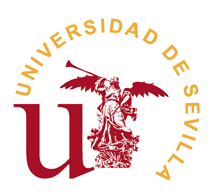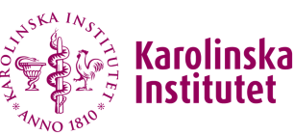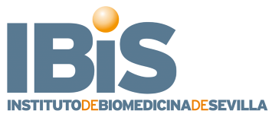Workshop: THE ROLE OF MICROGLIA IN NEURODEVELOPMENTAL AND NEURODEGENERATIVE DISORDERS/B164
D. José Luis Venero. Instituto de Biomedicina de Sevilla (IBiS). Departamento de Bioquímica y Biología Molecular, Facultad de Farmacia. Sevilla.
D. Bertrand Joseph. Karolinska Institutet. Institute of Environmental Medicine The Chinese University of Hong Kong. Center for Neuromusculoskeletal Restorative Medicine.
-
finalizado
-
Desde: 23 Septiembre 2025
-
Hasta: 25 Septiembre 2025
-
Presencial
-
Investigadora
-
Preferentemente inglés
-
20 horas
-
400 euros
-
35
Presentación y objetivos
Introduction
Microglia, the resident immune cells of the central nervous system, play a pivotal role in both neurodevelopment and neurodegeneration. During brain development, microglia contribute to synaptic pruning, neuronal maturation, and circuit refinement, ensuring proper connectivity and function. Their dynamic interactions with neurons and glial cells are essential for shaping the neural environment and maintaining homeostasis. However, microglial dysfunction has been implicated in various neurodevelopmental disorders, including autism spectrum disorder and schizophrenia.
In the aging brain and under pathological conditions, microglia shift toward a reactive state, contributing to neuroinflammation and neurodegeneration. Chronic activation of microglia has been associated with Alzheimer’s disease, Parkinson’s disease, and other neurodegenerative disorders, where their inflammatory responses may exacerbate neuronal damage. Emerging research highlights the heterogeneity of microglial states, with specific phenotypes linked to either protective or detrimental outcomes. Understanding the molecular mechanisms underlying microglial function and dysfunction is essential for developing targeted therapeutic strategies.
This workshop will bring together leading researchers to discuss the latest advances in microglial biology, their contributions to neural development and degeneration, and emerging therapeutic approaches. Through interdisciplinary discussions, we aim to foster new insights into microglial function and their potential as targets for intervention in neurological diseases.
Expected Impact
This workshop aims to provide a platform for discussing groundbreaking research on microglia and their role in the nervous system. Key objectives include:
• Showcasing cutting-edge research on microglial biology and its implications in neurodevelopmental and neurodegenerative disorders.
• Encouraging collaborations between senior and early-career researchers.
• Facilitating knowledge exchange through interactive discussions and poster presentations.
• Highlighting novel therapeutic approaches targeting microglial dysfunction.
The Role of Microglia in Neurodevelopmental and Neurodegenerative Disorders
PROGRAMME
Monday, September 22nd 2025
18:00: Registration
Tuesday, September 23rd 2025
9:00-9:20 Welcome remarks: Bertrand Joseph and Jose L. Venero
Session I. Microglia and plasticity
Chair: Alberto Pascual
9:20-10:00 Bertrand Joseph
Title: Plasticity and diversity are required for microglial functions
10:00-10:20 Short talk (to be selected): Miguel Ángel Burguillos: Caspase-3 Control of RNA Splicing and Mitochondrial Dynamics in Microglia
10:20-10:45 Coffee Break
10:45-11:25 Marie-Éve Tremblay
Title: Outcomes of the lifestyle and environment on microglial interactions with neurons and synapses
11:25-12:05 Amanda Sierra
Title: Born to be a phagocyte: developmental maturation of microglial phagocytosis efficiency
12:05-12:25 Short talk (to be selected): Guillermo Vazquez Cabrera: Title:Uncovering microglia adaptations prior to depletion in response to PLX treatment
13:30 LUNCH
15:30-16:30 POSTER VIEWING
Session II. Neurodevelopment and microglial modulation
Chair: Bertrand Joseph
16:30-17:10 Staci D Bilbo
Title: Neural-glial interactions in development and degeneration: a role for neuronal-derived interleukin 34
17:10-17:50 Alberto Pascual Bravo
Title: The role of mitochondrial OXPHOS in microglia
17:50-18:15 Coffee Break
18:15-18:55 David Menassa
Title: Mapping microglial cartography during human brain development and its relevance to neurodevelopmental disorders
18:55-19:35 Lola Ledesma
Title: Pathological crosstalk between oligodendrocytes, microglia and neurons in lysosomal storage disorders
20:30 DINNER
Wednesday, September 24th 2025
Session III. Microglia and neurodegeneration I
Chair: Jose Luis Venero
9:00-9:40 Tomas Deierborg
Title: The role of microglial galectin-3 Alzheimer’s disease: Prospects for therapy
9:40-10:20 Michael Heneka
Title: Innate immune impact on Alzheimer disease pathogenesis
10:20-10:45 Coffee Break
10:45-11:25 Francisco Javier Vitorica Ferrández
Title: Microglial dysfunction in Alzheimer pathology.
11:25-11:45 Short talk (to be selected): David Pozo: Functional characterization and mechanistic insights reveal ADNP protein (Activity-Dependent Neuroprotective Protein) physiological roles in microglia and its potential implications in neurodegeneration
12:00-13:30 GUIDED TOUR TO BAEZA
13:30 LUNCH
15:30-16:30 POSTER VIEWING
Session IV. Microglia and neurodegeneration II
Chair: Michael Heneka or Javier Vitorica
16:30-17:10 Antonia Gutiérrez
Title: Imaging senescent microglia in the Alzheimer's disease brain
17:10-17:50 Jose Luis Venero
Title: Microglial phenotypes in neurodegenerative disorders: Roles, implications, and the case of Galectin-3
17:50-18:15 Coffee break
18:15-18:55 Guy Brown
Title: Microglial phagocytosis and lysosomal exocytosis in neurodegeneration
18:55-19:15 Short talk (to be selected): Alicia Rosales: Microglia and endothelial cells interaction in Alzheimer’s disease mouse models
19:15-19:35 Short talk (to be selected): Cintia Roodveldt: MOK, a new signaling kinase in microglial responses and neuroinflammation, with implications in ALS
19:35-19:55 Short talk (to be selected): Antonio Boza: Microglial Activation and Galectin-3 in GRN-Mediated Frontotemporal Dementia
20:30 DINNER
Thursday, September 25th 2025
9:00-9:20 Short talk (to be selected): Lluis Camprubí Ferrer
Title: Galectin-3 mediates microglia-neuron crosstalk to drive tau pathology and aberrant myelination.
9:20-9:40 Short talk (to be selected): Clara Muñoz Castro: Microglial modulation of astrocyte metabolism in Alzheimer's disease
9:40-10:00 Concluding remarks: Rocío M. de Pablos and Rocio Ruiz.
D. José Luis Venero. Instituto de Biomedicina de Sevilla (IBiS). Departamento de Bioquímica y Biología Molecular, Facultad de Farmacia. Sevilla.
D. Bertrand Joseph. Karolinska Institutet. Institute of Environmental Medicine The Chinese University of Hong Kong. Center for Neuromusculoskeletal Restorative Medicine.
Dr. Bertrand Joseph
Professor at the Karolinska Institutet (Sweden)
Dr. Jose Luis Venero
Professor at the University of Sevilla and Institute of Biomedicine of Seville (Spain)
Dr. Alberto Pascual Bravo
Research Professor at the Institute of Biomedicine of Seville (Spain)
Dr. Amanda Sierra
Research Professor at the Achucarro Basque Center for Neuroscience (Spain)
Dr. Antonia Gutiérrez
Cell Biology Professor at the University of Málaga (Spain)/ CIBERNED/IBIMA-Plataforma Bionand
Dr. David Menassa
Affiliated to Research at the Karolinska Institutet (Sweden)
Dr. Javier Vitorica
Professor at the University of Sevilla/ Institute of Biomedicine of Seville (Spain)/ CIBERNED
Dr. Guy Brown
Professor at the University of Cambridge (United Kingdom)
Dr. Lola Ledesma
Research Professor at the Centro de Biología Molecular Severo Ochoa (Spain)
Dr. Marie-Éve Tremblay
Professor at the University of Victoria (Canada)
Dr. Michael Heneka
Professor at the University of Luxembourg (Luxembourg)
Dr. Staci D Bilbo
Professor at the Duke University (USA)
Dr. Tomas Deierborg
Professor at the Lund university (Sweden)
The workshop is intended for junior scientists—including early-career principal investigators, postdoctoral fellows, and graduate students—as well as senior, well-established researchers. Participants should be engaged in research related to neuroinflammation, neurodegeneration, or neurodevelopmental disorders, with a particular focus on microglia as a central component.
This multidisciplinary workshop aims to explore the diverse roles of microglia in neurodevelopmental and neurodegenerative diseases, providing a valuable platform for researchers working in this field to exchange knowledge, share recent findings, and foster collaborative efforts that drive scientific progress. Attendance is limited to 35 participants, completing a group of 50 including invited speakers. A key objective of this workshop is to promote interaction between junior scientists (young PIs, postdoctoral fellows, and graduate students) and well-established senior investigators. The combination of an intimate setting and a select group of participants will create a unique forum for in-depth discussions, facilitating the exchange of knowledge, the sharing of recent unpublished findings, and the establishment of new collaborations. "See application guidelines".
FORMATE OF THE WORKSHOP:
The workshop will bring together 15 speakers and a maximum of 35 participants. The scientific programme will start on Tuesday 23rd September in the morning and will end on Thursday 25th September in the morning. Ample time for informal discussion will be reserved. Participants are encouraged to present a poster. A considerable number of submitted abstracts will be selected for short talks.
VENUE OF THE WORKSHOP:
The workshop will be held in Baeza, at the “Antonio Machado Headquarters”, a XVII century building turned into a Conference Centre of the International University of Andalusia (UNIA). A complex made up of two historic buildings: the Jabalquinto Palace (XV/XVI centuries) and the old Seminary (XVII century) located in the heart of the historic complex, among the old University, church of Santa Cruz, the cathedral and the Upper Town Halls.
This site includes a recently restored residence, where speakers and participants will be accommodated. This same space is where the meetings will be held, which facilitates social interaction and informal discussions.
Baeza is a world historic heritage town, renowned for its Renaissance and Gothic buildings.
ACCOMMODATION:
We recommend all participants to stay in the University Residence, which is located in the same space where the Meetings will take place, to facilitate social interaction and informal discussions.
The accommodation in the University Residence is in shared double rooms, € 20/day and single rooms € 40/day. To make the reservation and the corresponding payment you must be previously registered for the workshop and then contact:
WORKSHOP REGISTRATION:
A) Applicants must complete an application form and submit it, along with:
A brief C.V.
A summary of the current research work of the candidate.
In case of presenting a poster, a summary of the poster of no more than one page, with the title, authorship, research center/institution/university, address and a summary of the communication.
See section "presentation of panels and posters”.
SEE LINK TO:
Application form (odt)
Application form (doc)*:
En cumplimiento del Reglamento General de Protección de Datos (Reglamento (UE) 2016/679), se le informa que los datos personales que se puedan recopilar se incorporarán y procesarán en algunos de los archivos de la Universidad Internacional de Andalucía (UNIA); los datos pueden divulgarse según lo previsto por la ley.
La autoridad responsable de los datos es: UNIA: Secretaría General (Secretario General). C / Américo Vespucio nº 2, Isla de la Cartuja. 41092 - SEVILLA, ESPAÑA.
Puede ejercer sus derechos de acceso, rectificación, eliminación y oposición contactando por escrito con la dirección mencionada anteriormente, a la atención del Delegado de Protección de Datos, o enviando un correo electrónico a
B) Send the completed Application Form (doc/odt) and the attached documents as separate text files and in a single email message, to
Selected applicants (with or without poster) will be notified directly. From that moment on, they must pay the corresponding registration fees*.
WORKSHOP FEES 2024:
Registration: 400,00 € (breakfast, lunch, coffe-breaks and dinner included)
Payment method: bank transfer to ‘La Caixa’
IBAN (international bank account number): ES78 21009166752200074348
SWIFT (BIC): CAIXESBBXXX
Registration fees deadline 22 August 2025
Selected applicants must indicate their full name and code number (it will appear in the webpage) in the bank transfer. After completing your payment by bank transfer, a proof of payment must be sent to:
The bank charges generated by the bank transfer will be paid by the applicants/attendees.
WORKSHOP panels/posters guidelines:
Presentation of the proposal: through the registration form in the Worhshop.
Shipping address for panels/posters:
o For the oral presentation of posters it is essential to have formalized registration and payment of the Workshop.
o The co-director of the Workshop will indicate and assign the session in which to present the work.
o The organization will certify the effective presentation of each panel/poster during the Workshop.
o Each author individually or collectively may present a maximum of 2 panels.
o Researchers may display their panel in the campus facilities. To do this, they must bring their work printed in DIN A0 vertical format (84.1 x 118.9 cm) and arrange it in the provided fastening systems.
Panel/poster contents:
• Title: Arial bold 14 points.
• Subtitle (if applicable).
• Authorship (individual or collective).
• Keywords: maximum 4.
• Presentation / Summary of content: 120 words.
• Methodology: 100 words.
• Description and contents: through text and graphics.
• Conclusions: maximum 100 words
• Sources and essential bibliography.
• Format: to transfer digitally DIN A4; PDF. Type: Arial. Body: minimum 9 and maximum 12 points.
Matrícula y becas
Situación actual:
-
finalizado
Conoce nuestro propio programa de becas y consulta en las bases de la convocatoria los casos donde la beca contempla exención de precios o una ayuda económica.
Los estudios de formación continua son enseñanzas de ampliación, especialización, perfeccionamiento y/o actualización de conocimientos destinados a cubrir áreas temáticas concretas de interés, con unos objetivos bien definidos, que permiten responder de una forma ágil y eficaz a las distintas demandas de conocimiento de la sociedad.
No están sujetos a requisitos de acceso.
Programa de becas y ayudas de la Universidad Internacional de Andalucía.
La Universidad Internacional de Andalucía, como complemento a las convocatorias de la Administración General del Estado y de la Comunidad Autónoma, en el ejercicio de sus competencias y de acuerdo con su disponibilidad presupuestaria, establecerá para cada curso académico un programa de becas y ayudas al estudio.
Las modalidades y cuantías de las becas y ayudas, las condiciones académicas y económicas que hayan de reunir los candidatos, el procedimiento de gestión, así como los supuestos de incompatibilidad, revocación y reintegro y cuantos requisitos, condiciones socio-económicas u otros factores sean precisos para el acceso a las citadas becas y ayudas se regularán por su propia normativa que, en todo caso, debe asegurar los principios de igualdad y equidad, atendiendo a la promoción del rendimiento académico.
Para cualquier incidencia técnica durante su automatrícula, puede contactar con la dirección de correo electrónico:
Enlace al Manual de ayuda a la automatrícula
Los precios públicos a satisfacer en la matrícula serán determinados en la convocatoria de la actividad ofertada.
La eficacia de la matrícula formalizada y de los actos administrativos que de ella pudieran derivarse quedará demorada hasta tanto no se produzca el pago de la totalidad de los precios públicos establecidos. El impago de la misma implicará el desistimiento de la solicitud de matrícula.
La Universidad Internacional de Andalucía acreditará los logros académicos obtenidos por sus estudiantes mediante la emisión del correspondiente certificado de asistencia o diploma de aprovechamiento, siempre que el estudiante haya asistido al 80% de las clases. El certificado de asistencia se expedirá en aquellos casos en que el programa no contemple ninguna evaluación o el/la alumno/a no la haya superado. Si el programa cuenta con evaluación y el/la alumno/a la supera, recibirá un diploma de aprovechamiento con la calificación obtenida. Estos documentos se emitirán una vez cumpla el alumnado con los requisitos establecidos en la convocatoria para su expedición.


